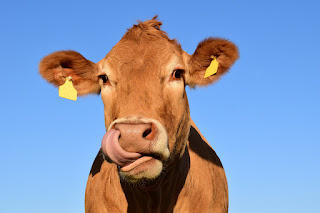Hurricanes and Food
The Right to Food 101
We are all familiar with the devastating impact of Hurricanes Harvey and Maria. What Harvey started, Maria finished. Harvey had the most devastating impact on Texas and Florida. Maria wiped out Puerto Rico.
I never seriously thought about the impact of natural disasters on food supplies before I started studying food law. Any concerns I had were quickly placated by news stories flashing clips of food and medicine being delivered via helicopter to areas ravished by forces of nature. Looking at the most recent hurricanes through the lens of food law policy, of course, is an entirely different view.
The Right to Food is one of the courses I am taking this semester. We are studying the concept of the human right to adequate food and the practical application of that right. It's an entirely different view of food and nutrition, particularly in a natural disaster.
Our assignment was to select a crisis and examine the problem of food insecurity in that situation. I chose Puerto Rico because it is a United States territory that suffered extreme devastation by Maria, and because of all the many countries, the United States is the most puzzling to me.
We are one of the most advanced countries in the world, and yet, we have not ratified many international treaties. For example, most countries that are members of the United Nations have ratified the Convention on the Elimination of All Forms of Discrimination Against Women. But the United States, joins only a handful of other countries—including Iran and Sudan—that have not ratified this convention.
Another example of the United States being laggards in the ratification department is the International Covenant on Economic, Social and Cultural Rights (ICESCR). The ICESCR includes, among many other things, the right to food. The United States has signed this convention, but never ratified it. In other words, we are saying that we basically think it's a good idea, but we don't want to be bound by it or held accountable.
The saving grace is, at least by signing a covenant—even though we haven't ratified it, we can't act in a way that defeats the goal of the treaty.
In the context of post-Maria food supply, this means that United States can't stand in the way of ensuring the right to food for people in Puerto Rico. While this legal nuance is of little comfort to the thousands of people without adequate food and water in the aftermath of the hurricane, it made me pause to think about this great nation and our role as world leaders.
There is a continuing humanitarian crisis in Puerto Rico, and I—for one—think we can do more. Treaty or no treaty. Ratified or not. We can and must do more for our fellow citizens on the island of Puerto Rico. The right to food is a basic human right. How can we deny them a simple basic— adequate food? And, if we do, how great are we?
Until next week, back to the books ...




Comments
Post a Comment